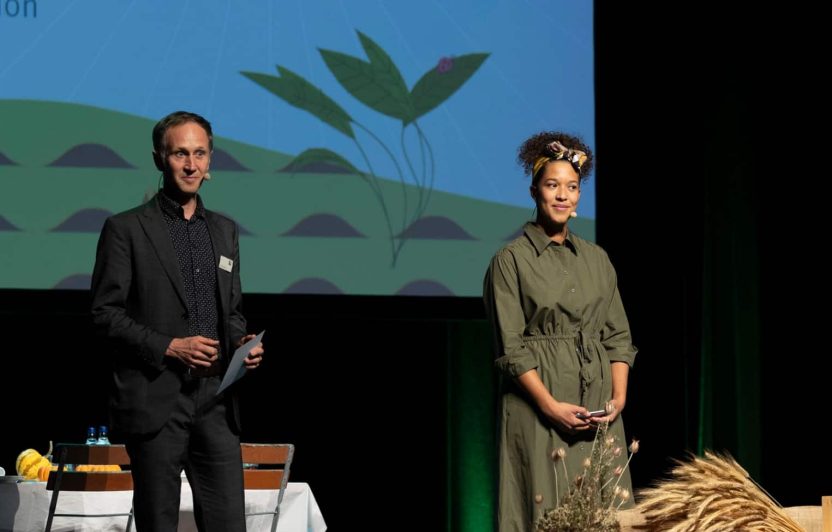East Africa is a region beset by climate- and conflict-related shocks. Millions of people are already acutely food insecure. Now they face another major hunger threat in the form of desert locusts. Each day, more countries are affected. Last week, a swarm crossed into one of Africa’s most food-insecure and fragile countries, South Sudan. Just this week, it was confirmed that one swarm reached the eastern boundaries of the Democratic Republic of the Congo – a country that has not seen a locust incursion since 1944.
The next wave of this plague is about to appear
“The desert locusts are currently in a transitional stage”, explains Stefan Diener, researcher into insects at Biovision. Right now, he is very closely monitoring reports on the swarms’ movements, and keeping in contact with Biovision’s partner organisations in East Africa. “The first swarms have come through and laid their eggs. Once these juvenile locusts hatch, the next wave will arrive”, is his anxious warning.
Desert locusts have a reproduction cycle of three months. Today, mature swarms are laying eggs within vast areas of Ethiopia, Kenya and Somalia, many of which are already hatching. In just a few weeks, the next generation of the pests will transition from their juvenile stage and take wing in a renewed frenzy of destructive swarm activity. This will be just as farmers’ crops begin to sprout. The next wave of locusts could devastate East Africa’s most important crop of the year, right when it is at its most vulnerable. Anticipatory action to control and contain the locusts before the new swarms take flight and farmers crops first break soil is critical.
Sustainable solutions do exist – but the money is not available
Local people are putting intense pressure on the authorities to take rapid, radical action against the billions of voracious locusts. Comprehensive deployment of toxic insecticide now seems to be the only possible way that the plague can be brought under control. However, the effect of these poisonous materials is non-specific; they kill other (beneficial) insects as well – and they also put the health of both humans and animals at risk (see the report in “Echo der Zeit” 21.02.2020). Over the past few weeks, icipe, the International Centre of Insect Physiology and Ecology in Nairobi, Kenya (and a long-term partner organisation of Biovision) has therefore put together an action plan to develop alternatives to replace aggressive chemicals, and is currently looking for sources of funding for this work. However, these resources will not be available in time for the next wave of this plague, which is now looming within just a few weeks. From the onset of the rains from March and the subsequent start of the growing period, the desert locusts will present a definite threat to food security in the region.
Our vision: more resources for agroecological research
In order for ecological alternatives to be available at short notice in catastrophic situations such as the current locust plague, and for food for the world’s population to be safeguarded sustainably in the medium and longer term, more funds need to be invested now for research into agroecological methods. The Biovision project on “More Research for Agroecology” is working towards this goal“.
Recommended Websites:
- Visualization: Areas affected by the Desert Locust crisis in the Horn of Africa (FAO)
- United Nations (FAO): Desert locust crisis in East Africa
- United Nations (FAO): “Locusts in East Africa: A race against time”, 26.2.2020





